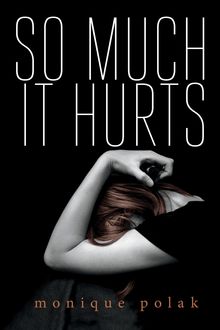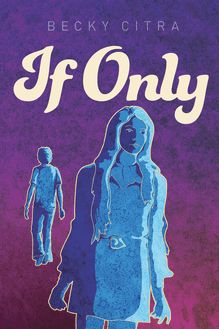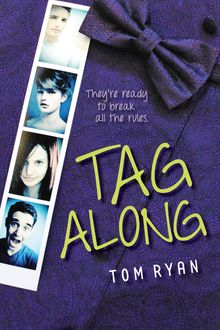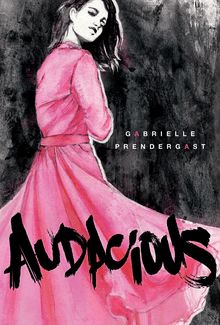-
 Univers
Univers
-
 Ebooks
Ebooks
-
 Livres audio
Livres audio
-
 Presse
Presse
-
 Podcasts
Podcasts
-
 BD
BD
-
 Documents
Documents
-
- Cours
- Révisions
- Ressources pédagogiques
- Sciences de l’éducation
- Manuels scolaires
- Langues
- Travaux de classe
- Annales de BEP
- Etudes supérieures
- Maternelle et primaire
- Fiches de lecture
- Orientation scolaire
- Méthodologie
- Corrigés de devoir
- Annales d’examens et concours
- Annales du bac
- Annales du brevet
- Rapports de stage
La lecture à portée de main
Vous pourrez modifier la taille du texte de cet ouvrage
Découvre YouScribe en t'inscrivant gratuitement
Je m'inscrisDécouvre YouScribe en t'inscrivant gratuitement
Je m'inscrisEn savoir plus
Vous pourrez modifier la taille du texte de cet ouvrage
En savoir plus

Description
Growing up in a picturesque Newfoundland fishing village should be idyllic for sixteen-year-old Kit Ryan, but living with an alcoholic father makes Kit's day-to-day life unpredictable and almost intolerable.
When the 1992 cod moratorium forces her father out of a job, the tension between Kit and her father grows. Forced to leave their rural community, the family moves to the city, where they live with Uncle Iggy, a widower with problems of his own. Immediately pegged as a "baygirl," Kit struggles to fit in, but longstanding trust issues threaten to hold her back when a boy named Elliot expresses an interest in her.
Sujets
Informations
| Publié par | Orca Book Publishers |
| Date de parution | 01 septembre 2013 |
| Nombre de lectures | 4 |
| EAN13 | 9781459802766 |
| Langue | English |
| Poids de l'ouvrage | 1 Mo |
Informations légales : prix de location à la page 0,0604€. Cette information est donnée uniquement à titre indicatif conformément à la législation en vigueur.
Extrait
Baygirl
Heather Smith
Text copyright © 2013 Heather Smith
All rights reserved. No part of this publication may be reproduced or transmitted in any form or by any means, electronic or mechanical, including photocopying, recording or by any information storage and retrieval system now known or to be invented, without permission in writing from the publisher.
Library and Archives Canada Cataloguing in Publication
Smith, Heather, 1968
Baygirl [electronic resource] / Heather Smith.
Electronic monograph.
Issued also in print format.
isbn 978-1-4598-0275-9 (pdf).--isbn 978-1-4598-0276-6(epub)
I. Title.
ps8637.m5623b39 2013 c2013-901883-2
First published in the United States, 2013
Library of Congress Control Number: 2013935299
Summary: When Kit’s alcoholic fisherman father loses his job, the family is forced to leave the Newfoundland outport they call home.
Orca Book Publishers gratefully acknowledges the support for its publishing programs provided by the following agencies: the Government of Canada through the Canada Book Fund and the Canada Council for the Arts, and the Province of British Columbia through the BC Arts Council and the Book Publishing Tax Credit.
Cover design by Teresa Bubela
Cover images by Getty Images and Steve Feltham
Author photo by Robin Smith
In Canada: Orca Book Publishers PO Box 5626, Station B Victoria, BC Canada V8R 6S4
In the United States: Orca Book Publishers PO Box 468 Custer, WA USA 98240-0468
www.orcabook.com
16 15 14 13 • 4 3 2 1
Contents
Chapter One
Chapter Two
Chapter Three
Chapter Four
Chapter Five
Chapter Six
Chapter Seven
Chapter Eight
To Duncan, Rosie and April
And, always, to Rob
one
Tickle Cove Pond
As soon as I opened the door, I could smell it. I looked at my watch. It was only three twenty in the afternoon. But time of day never made any difference to him. He had a whiskey with his bacon and eggs once. He drank it out of a coffee mug, as if that made it okay.
I threw my backpack on the kitchen floor and put the kettle on.
“How was school today, my marvelous daughter?”
“Fine.”
“What did you do?”
“We talked about The Old Man and The Sea .”
“Ah, Hemingway.”
Sounding surprised might set him off, so I kept my voice flat. “You’ve read it?”
He leaned back in his chair and rubbed his chin. “I certainly have, Kitty, I certainly have. Wonderful book, marvelous, just marvelous.”
He looked ridiculous, trying to act intelligent.
“So what did you think of it?” he asked, pouring himself another drink.
I threw a teabag in a mug and snorted. “I thought, Catch the marlin, old man, and put me out of my misery. ”
My father’s jaw hardened. “You think it’s that easy, do you? Fishin’? You think you just go out on a boat, catch a few fish and come home again?”
For a second I thought about walking away, but the idea evaporated as quickly as the wisps of steam rising from the kettle.
I leaned against the counter and folded my arms. “I never said it was easy.”
“Sounds to me like you did. Sounds to me like you think it’s the easiest job in the world.”
“All I’m saying is that it took the old man a long time to catch one measly fish.”
Dad tried to stand up but couldn’t quite get his balance. He gave up, waving a finger for emphasis instead. “Measly fish?” he yelled. “Measly fish?”
The rumblings inside the kettle grew louder.
“Lemme tell you something, my lady, I’ve had my own struggles with the ocean and its creatures and I can really understand that Santiago fella.”
Eye contact might give the impression I was interested, so I looked away. I stared at the stupidest clock ever invented, a monstrosity my father had won at darts twenty years ago. There were bottles of beer where the numbers should be, and my father never tired of announcing it was “beer o’clock” whenever anyone asked the time.
“Are you listenin’ to me, Kitty?”
The whistle from the kettle was piercing, an irritating soundtrack to an irritating discussion.
“Sorry, I was just admiring the clock.”
“Don’t be smart with me, young lady.”
“Okay, I’ll be dumb with you. That way we’ll be on the same intellectual level.”
My father slammed his fist down on the table. “Why can’t we ever have a normal conversation?”
Replies flooded my brain. Because you’re not a normal person. Because you’re always drunk. Because you’re an idiot. But I knew better than to say any of them out loud, so I just shrugged.
He poured himself another drink. “What? No smart comebacks?”
I looked at his bloodshot eyes, his flushed cheeks, the broken veins on his nose. “Nope.”
When my father spoke again, his voice was barely audible over the sound of the screeching kettle. “I think you owe me an apology.”
I switched the stove off. “For what?”
He didn’t answer right away. He just stared into his shot glass.
“Cue the dramatic pause,” I muttered.
My father looked hurt. Genuinely. I pretended not to notice.
“Everything I do, Kitty, is for you. Everything. And you just throw it back in my face. Every time.”
It was a classic move, the “poor me” act. I’d seen it a thousand times, and I wasn’t falling for it.
“Well? What do you have to say for yourself, young lady?”
I didn’t bother pouring the boiled water into my mug. I wouldn’t be there to drink it.
“I’m sorry,” I said.
He went from sad to smug in an instant.
“Sorry that you’re such a friggin’ loser.”
The look on his face was priceless.
I was out the door before he’d wobbled his way to standing. And, as always, I ran to Nan’s.
My grandmother lived up the road from us in a little blue house set high on a hill. I couldn’t tell you much about her bedroom. Or her living room. Or any other part of her house, for that matter. But I knew every inch of her kitchen. The yellow walls, the old-fashioned stove in the corner, the rocker by the window and the ancient transistor radio on the windowsill that was rarely turned off. Nan’s kitchen overlooked the whole of Parsons Bay. From her rocker I could see the church, the school and the colorful wooden homes of our neighbors and friends. The inlet, flanked by steep, rugged cliffs, was the focal point. It was a busy spot where fishing boats puttered in and out and old men long retired from the trade gathered to tell tall tales about their days out at sea. The fish plant sat not far from the wharves, where fishing nets lay drying and local boats were docked. Tangled clumps of bright-orange buoys littered the ground, waiting for their chance to bob about in the Atlantic Ocean, which, from Nan’s window, looked endless.
I was five when I first escaped to Nan’s.
Dad had been in his smelly old recliner that reeked of alcohol, watching The Price is Right. I was sitting on the floor in the kitchen, playing with pots and pans and pretending to cook like our neighbor, Ms. Bartlett, who always had something interesting in her oven. Taking inspiration from her exotic recipes, I shook imaginary spices into my pot.
“A dash of curry powder,” I sang. “A pinch of fennel.”
My mother, who was scrubbing the kitchen counters, shook her head and laughed. “This is Parsons Bay, Kit. Not Bombay.”
A new word. Bombay. I liked it.
“Bombay!” I said. “Bombay! Bombay! Bombay!”
“For God’s sake!” Dad yelled. “Get that child to shut her trap. I can’t hear the Showcase Showdown.”
“Showcase Showdown!” I said. “Showcase Showdown! Showcase Showdown!”
My mother put a rubber-gloved finger to her lips and whispered, “Like this, Kit. Shhhhowcase Shhhhowdown.”
I tried it.
“Good girl,” she said. “Now get back to your cooking. Quietly this time.”
I flipped a plastic egg timer over and stirred.
“Want a taste?” I asked when the last grain of sand had fallen through the hourglass.
Mom bent over and slurped from the wooden spoon I held to her lips.
“Mmmmm. Delicious!”
“Play with me,” I said.
My mother looked at the partially scrubbed counters. “I’m kind of busy…”
“I have dessert too.” I tempted her with a tinfoil pie pan filled with crumpled tissues. “Lemon meringue.”
She looked at the clock on the wall.
“Is it beer o’clock?” I asked.
A scowl crossed my mother’s face. “No.”
“What time is it then?”
The hall clock started to chime. “You tell me,” she said. “Listen.”
I counted the bongs. “Twelve!”
Dad must have counted too. “Where’s my bloody lunch?” he yelled. “I’m bloody starving!”
My mother straightened up. “Sorry, Kit. I’ll have to take a rain check on that pie.”
I covered my pie pan with a tea towel. “I’ll keep it warm for you.”
“Good idea,” said Mom.
My father hollered again. “Where’s my bloody bin of teans?”
My mother covered her mouth and turned away, but it was too late—I’d caught the smirk, and once I caught something, I wouldn’t let it go.
“Bin of teans! ” I sang. “Bin of teans! Where’s my bloody bin of teans?”
My mother shushed me as she emptied a can of Heinz baked beans into a saucepan.
“Bin of teans! Bin of teans! Where’s my bloody bin of teans?” I sang again.
“Shhh, Kit, seriously. Be quiet,” said my mother, but I could tell she thought it was funny.
I turned a pot upside down and sang the song again, pounding out an accompanying rhythm with a wooden spoon.
“Kit.” My mother giggled. “Stop it.”
I liked it when she laughed. So I stood on top of the pot and threw my arms in the air and sang in my best Julie Andrews voice, “Bin of teans! Bin of teans! Where’s my bloody bin of teans?”
And there he was. In the doorway. “What’s that bloody racket? Can’t a man watch the TV in peace?”
My mother went all slumpy and
-
 Univers
Univers
-
 Ebooks
Ebooks
-
 Livres audio
Livres audio
-
 Presse
Presse
-
 Podcasts
Podcasts
-
 BD
BD
-
 Documents
Documents
-
Jeunesse
-
Littérature
-
Ressources professionnelles
-
Santé et bien-être
-
Savoirs
-
Education
-
Loisirs et hobbies
-
Art, musique et cinéma
-
Actualité et débat de société
-
Jeunesse
-
Littérature
-
Ressources professionnelles
-
Santé et bien-être
-
Savoirs
-
Education
-
Loisirs et hobbies
-
Art, musique et cinéma
-
Actualité et débat de société
-
Actualités
-
Lifestyle
-
Presse jeunesse
-
Presse professionnelle
-
Pratique
-
Presse sportive
-
Presse internationale
-
Culture & Médias
-
Action et Aventures
-
Science-fiction et Fantasy
-
Société
-
Jeunesse
-
Littérature
-
Ressources professionnelles
-
Santé et bien-être
-
Savoirs
-
Education
-
Loisirs et hobbies
-
Art, musique et cinéma
-
Actualité et débat de société
- Cours
- Révisions
- Ressources pédagogiques
- Sciences de l’éducation
- Manuels scolaires
- Langues
- Travaux de classe
- Annales de BEP
- Etudes supérieures
- Maternelle et primaire
- Fiches de lecture
- Orientation scolaire
- Méthodologie
- Corrigés de devoir
- Annales d’examens et concours
- Annales du bac
- Annales du brevet
- Rapports de stage











